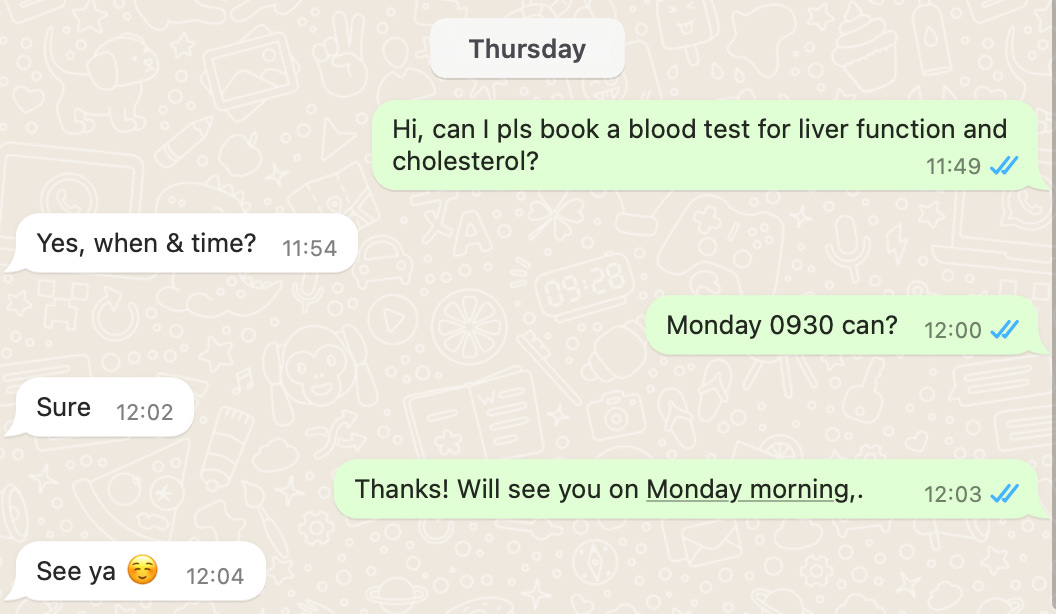
Singapore is a pretty good place to be when you’re ill. Don’t get me wrong, it’s a much better place when you’re not ill, but compared to the GP experience you normally get in London, Singapore is altogether healthier.
That’s because healthcare in Singapore is more like a consumer product rather than a public service. When you get medical help, you’re a customer first and a patient second, bringing with it certain expectations for customer service, such as offering free drinks and keeping you alive.
Of course, this comes at a price, and coughing up for health insurance is essential, whereas the UK’s health service is ostensibly free - but it also means that you get better service and greater choice.
By way of illustration, most doctors’ surgeries are found in malls, along with just about everything else in Singapore. Funeral parlours, for example, in case you suddenly need one. Within five minutes of where I work there are dozens of doctors, all of which take unregistered walk-ups for consultations and none of which seem to have waiting times.
Whereas the process of seeing a doctor in the UK is like getting Glastonbury tickets. A same-day appointment requires calling the one surgery you are pre-registered with at the exact moment their phone lines open, along with all the other desperate souls that need medical attention. Then you have to redial every few seconds until you actually get through. Then you find that there no slots left and that the next available appointment might be a week from now, which is only handy if you plan your illnesses in advance. In the meantime, your only choice for immediate treatment is going to A&E.
Compare that process with my recent experience of booking a doctor’s appointment in Singapore via the ubiquitous WhatsApp:
As a 45-year old that drinks wine for a living, I don’t feel like I’m revealing anything shocking here, other than my Singlish.
The downside of paying for healthcare - other than the actual paying for it part - is that there’s a tendency for doctors to over-prescribe. Even slightly elevated levels of cholesterol will prompt an enthusiastic recommendation of statins, as I learned last year. Compare that to the UK, where NHS advice for most ailments often seemed to be to rest for a few days and come back if it doesn’t get any better.
It’s easy to be cynical and say that in Singapore, doctors make a tidy profit on prescriptions and might have an impartial relationship with pharmaceutical companies, while the British NHS is chronically underfunded and simply can’t afford to prescribe indiscriminately. Yes, it’s easy to be cynical. But it’s very possibly true as well.
But market competition in Singapore returns us to the point that doctors have a vested interest in retaining their customers: if you don’t like the service because you got ripped off with a big bill, you can go elsewhere - not only to the other conventional doctors that are very nearby, but also to Traditional Chinese Medicine practitioners - also included as standard on insurance policies.
I haven’t quite ventured that far yet. Besides, it turns out that my liver function and cholesterol levels are back in safe territory after I started to exercise more and drink less. No statins required.
Although if you want some, I know a guy.





"Monday 9.30 can?" 😅👍